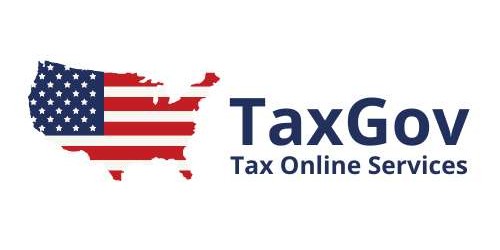Why International Students Need an ITIN
Why International Students Need an ITIN is a common question among students studying in the United States. An Individual Taxpayer Identification Number (ITIN) is essential for international students who don’t qualify for a Social Security Number but need to comply with tax obligations. ITINs are used by the IRS to process and manage tax-related activities for those who are not eligible for an SSN. Without an ITIN, international students would face difficulties when filing tax returns, receiving taxable scholarships, or opening a bank account. Additionally, having an ITIN ensures that students can claim any tax treaty benefits available to them, potentially reducing their overall tax liability. Understanding the importance of the ITIN can help international students efficiently manage their financial responsibilities in the U.S.
Steps to Apply for an ITIN
Steps to Apply for an ITIN can seem daunting, but with the right guidance, the process is straightforward. First, students must complete IRS Form W-7, the application for the ITIN. Supporting documents proving identity and foreign status, such as a passport or visa, must accompany the application. The completed form and original documents or certified copies should be mailed to the IRS. Alternatively, students can apply in person through IRS Taxpayer Assistance Centers or a Certified Acceptance Agent. After submission, it typically takes six to eight weeks for the IRS to issue an ITIN. It’s crucial to apply well in advance of any tax deadlines to ensure compliance. International students should consider consulting with a tax advisor to ensure a smooth application process.
Need help getting your ITIN?
We can help you apply for your ITIN quickly and easily. Let our team handle the process for you.
Common Mistakes to Avoid When Applying
Common Mistakes to Avoid When Applying for an ITIN can save international students both time and headaches. One of the most frequent errors is incomplete or inaccurate information on Form W-7, which can lead to delays or rejections. Another mistake is failing to submit the proper documentation with the application. Students must ensure all submitted documents are current and appropriately certified. Applying too late is another pitfall; students need to allow ample time for processing ahead of tax deadlines. Some neglect to check their status or follow up with the IRS if their ITIN hasn’t arrived on time. Being proactive and careful during the application process is crucial to avoid these common pitfalls.
Understanding Tax Obligations for Students
Understanding Tax Obligations for Students is essential for international scholars. Depending on their visa status and presence in the U.S., students may be considered non-resident or resident aliens for tax purposes. This classification impacts whether they are required to pay taxes on worldwide income or just income from U.S. sources. Their tax obligations can also be influenced by tax treaties between the U.S. and their home country, which can grant exemptions or favorable tax rates on certain types of income. Navigating these responsibilities requires familiarity with IRS forms like the 1040NR and consulting tax advisors when needed to ensure compliance.
Maintaining and Renewing Your ITIN
Maintaining and Renewing Your ITIN is an essential step for international students to remain compliant with U.S. tax laws. ITINs do not expire for as long as they are in continuous use, but those not used on a tax return at least once in a three-year period will need renewal. The IRS notifies holders of upcoming expirations, and students must submit a new Form W-7 to renew their ITIN. Supporting documentation similar to the original application process is required. Failure to renew an ITIN can lead to issues with tax processing, refunds, and future filings. It’s important for international students to keep track of their ITIN status and ensure they renew promptly when necessary.
When to Contact a Tax Professional
When to Contact a Tax Professional involves understanding when additional help is needed. International students should consider professional advice if their tax situation includes complexities, such as income from multiple sources, taxable scholarships, or involvement in any business. Tax professionals provide valuable insights into the applicability of tax treaties and ensure correct filing of all necessary forms. They can also assist with addressing any notices from the IRS regarding ITIN issues or tax filing discrepancies. Consulting a tax expert can save time, reduce errors, and minimize legal risks associated with non-compliance.
Benefits of Having an ITIN
Benefits of Having an ITIN extend beyond tax filing for international students. An ITIN allows students to fulfill their legal obligation to pay taxes on U.S.-sourced income, ensuring they remain in good standing with the IRS. It enables them to claim tax treaty benefits, potentially reducing the amount they owe. Having an ITIN provides the ability to open a U.S. bank account, which can be crucial for managing finances during their stay. It also makes it easier to apply for loans and build a credit history in the U.S. for those planning a longer-term stay or return visits. Overall, possessing an ITIN is invaluable for international students navigating the U.S. financial system.
Need help getting your ITIN?
We can help you apply for your ITIN quickly and easily. Let our team handle the process for you.
Transitioning from ITIN to SSN
Transitioning from ITIN to SSN often occurs when international students gain eligibility for a Social Security Number, usually through securing employment in the U.S. Once students obtain an SSN, they must ensure that their tax records reflect this change by notifying the IRS. The SSN will replace the ITIN as the primary tax identification number. Students should be diligent about updating their personal information with financial institutions and employers. The transition allows access to benefits unavailable with an ITIN, such as social security credit, but requires careful management to ensure continuity and compliance during tax filing.


